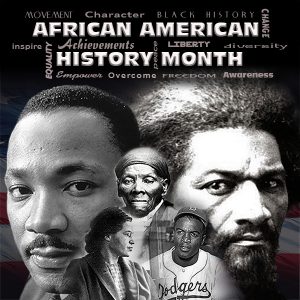Black people alone were brought here unwillingly, stolen from their homes and forced to live as slaves. In spite of this cruel beginning, In the Black American History, black Americans have played a major role in defining and shaping American beliefs, customs, and traditions. From the beginning, they have helped ensure the nation’s security and economic well-being.

Black American History
The moving of African slaves to other countries began as early as the fifteenth century, but the first slaves to land in British America were brought to the state of Virginia by the Dutch in 1619. Over the next 250 years, approximately one million slaves were imported in North America. The aim of slave-trade was to make money for the ship-owners who, having bought slaves very cheaply in Africa, sold them again in the Americas at a large profit to slave owners, who would use them to do all the hard labor on farms and cotton plantations.
African-American
Much of the country’s African-American population lived in rural areas and worked on farms owned by white landowners. For rural African-Americans, the Great Depression was hard to distinguish when poverty was always a way of life. Living conditions became more horrendous when some landowners lost their properties during the Depression. African-Americans had always relied on subsistence farming to supplement their meager earnings. In any case, most shared what little they had.
Slavery System
Despite the risks, some blacks constantly tried to undermine the slavery system. Some slaves chose to destroy property or fake illness to avoid having to work. Others took bolder steps to overthrow their masters by joining slave revolts. Still, others managed to escape. But many – perhaps most – slaves chose not to resists in the face of almost certain failure and death.
In Black American History, from the beginning of the Civil War, black Americans in the North and South offered to volunteer for military service. The South was nervous about how slaves would react to the war. During the first year of the Civil War, participation by blacks was limited almost entirely to non-military service. Some blacks went to war as body servants to their masters, and others worked faithfully on plantations and farms.
The government feared that the border states might join the rebels if blacks were enlisted and also that white troops might refuse to fight alongside black troops. Black Americans were limited to labor behind the lines as teamsters, camp attendants, waiters, and cooks.
Government Intervention
Federal Government intervention came in the form of President Roosevelt’s program called the “New Deal” that created several new federal agencies whose goal was to create jobs in order to alleviate the country’s high unemployment. The Writers’ Project provided jobs for both beginnings and experienced writers as long as they were unemployed and poor enough to qualify.
Some of these WPA workers interviewed hundreds of African Americans born before the passage of the Thirteenth Amendment outlawing slavery in 1865. Some of the people they interviewed were small children when the Civil War ended, but others were old enough to have experienced and remembered many aspects of slavery.
In the decade following World War I, an artistic explosion occurred within the Black community that produced a wealth of music, literature, poetry, dance, and visual art. The Harlem Renaissance was a period of creativity among Black artists, writers, musicians, orators, dramatists, and entertainers and was centered in Harlem in New York.
african American history facts, African American history timeline, African American history before slavery, African American slavery history, African American history books, African American vs black, black history people, African American history 1900s
